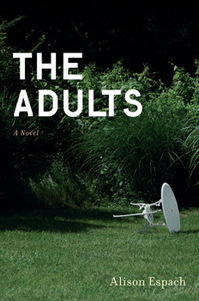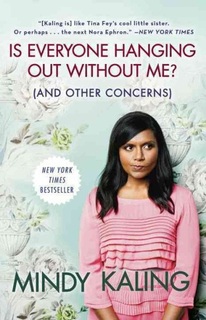
Author: Alison Espach
Genre: General Fiction
Pages: 336
Date published: 2011
Rating: 3 out of 5 stars
Recommended: Yes- but with the warning that this isn’t going to be in the canon anytime soon
I’ve come to the realization that I love a good “coming of age” story, so it’s only natural that I was instantly attracted to The Adults. The novel follows protagonist Emily Vidal as she matures in suburban Connecticut during the 1990s. The author, Alison Espach, describes Emily’s life through her early teens until her late 20s, as she struggles to accept her father walking out on her family.
Simply put, Espach is an incredible writer. She’s witty, sharp and poignant in her rendering of the inner monologues of a fourteen-year-old girl. She handles such topics as suicide, death and the pains of adolescence with a droll (yet endearing) twist. I found myself having flashbacks to my freshman year of high school due to the wit with which Espach recreates the tone of a young teenager. Her ability to empathize with her protagonist is astounding; I have never had anyone capture my thoughts at fourteen as clearly as she does.
However, the entire book isn’t relatable. I understand that pedophilia and student teacher relationships have been discussed extensively in other pieces of literature. But in this particular story, it quickly escalates into intense creepiness. Yet this particular student-teacher relationship forms part of the main story line. I can’t divulge more without giving away the plot, but at times, it made my skin crawl and felt unnecessary.
For the most part, The Adults kept my attention. The beginning of the novel seemed promising, but once I hit the ending, I found myself sorely disappointed. Throughout the first few chapters, I could relate to the character’s tone and perceptions of the world, but by the end, I became so frustrated with her and her decisions that I couldn’t sympathize.
The other large disappointment is the lack of a definite ending. I’m fine with novels ending in cliffhangers so as to provoke thoughtful ideas and discussion after the novel has concluded, but this novel doesn’t even have a stereotypical cliffhanger. More than an unclear ending, the novel leaves Emily struggling with a multitude of self-inflicted problems and no solutions. I felt like I had invested a lot of time into a protagonist with whom I was aggravated by the end.
The only reason I would recommend this book is the writing style. The plot is decent, and the ending frustrating, but Epach’s talent with words and descriptions is incredible. Her wit and incredibly poignant prose are what kept me reading until the last page.
Review by Hallie Sullivan, A&S '15


 RSS Feed
RSS Feed
